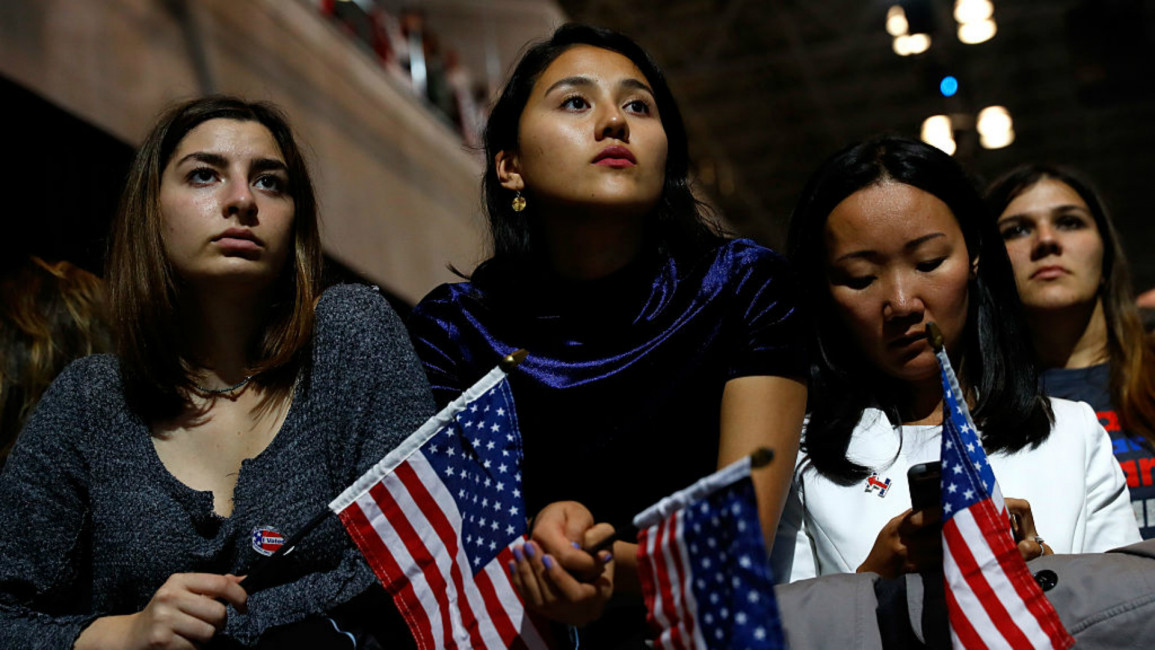
Post-election, this ugly tide of resentment must be turned
Donald J Trump has been elected President of the United States with at least 278 electoral votes, defeating Hillary Rodham Clinton and defying nearly every prediction outside of the country's most conservative media outlets.
The Republican Party retains the Senate and the House, and will likely select the next few justices of the Supreme Court.
His victory validates the feelings of millions of Americans that theirs is a country slipping away from their grasp, and gives hope to a conservative elite willing to tolerate the bile that Trump's campaign has brought forth in order to use his presidency as a springboard from which to launch a full-on assault on the left-of-centre domestic legacy of President Barack Obama.
It is a mandate to extol the kind of xenophobic nativism that has fuelled his campaign since its inception.
At the same time, Clinton's loss crushes the hopes of millions of Americans - that theirs was a country where all would be welcomed in their diversity and where the tired and the poor might find some refuge - given the Republican nominee's persistent demonisation, denigration or dismissal of Muslim-Americans, African-Americans, Hispanic-Americans, LGBTQ Americans, Americans with disabilities, immigrant Americans, Jewish-Americans, American women, Americans who fled war and famine, American women's reproductive health, and Americans' right to affordable health care.
Hammering home on the same few themes - law-and-order, build-a-wall, terrible-trade-deals, taking-our-jobs, "Crooked-Hillary" - Trump and running mate Mike Pence carved a path to victory through the American rust belt, relying on high turnout among rural and blue-collar white voters to shatter the Democratic Party's "blue wall" of supposedly safe states.
 |
We must engage with the forces that drove the present outcome and challenge them in 2018 |  |
Despite reports of high turnout among Latino and many other non-white communities, the Democratic candidate was unable to secure victory in North Carolina, Ohio, or Florida, and proceeded to lose Michigan, Wisconsin and Pennsylvania as well.
Further afield, this victory undoubtedly strikes a note of utmost concern for friendly governments near and far, given Trump's mercurial temperament and apparent disregard for any of the prevailing norms of international relations, from the usefulness of NATO to the wisdom of nuclear non-proliferation.
It remains to be seen whether Trump has any idea how to grapple with the conflicts he inherits in the Middle East - as well as the other overseas concerns of the American Empire - beyond leaving the region entirely to its own devices. The crucial, long-term issue of climate change is likely to remain - as it was in the presidential campaign - entirely off the table.
In the days and weeks ahead, countless words will pour forth from analysts and writers struggling to grapple with the immediate implications of a Trump presidency - the makeup of his cabinet, the first 100 days, executive orders to be signed, and so on. I have no desire to pre-empt those words here.
Instead, I wish to speak to those for whom Trump's victory - and Secretary Clinton's defeat - represents a startling and indeed panic-inducing rebuke to much of what they hold dear.
 |
It is crucial that we build and build upon the ties of friendship and camaraderie that sustain us |  |
The next four years will be trying and difficult for those of us who seek to move the United States of America forwards, not backwards - both here at home and amid the community of nations.
We must extend our understanding of the American community beyond our immediate comfort zones, to grapple with and understand the politics of resentment.
With compassion yet with resolute commitment to the values that drove our political loyalties in this election, we must engage with the forces that drove the present outcome and challenge them in 2018 - coming to terms with them where we can, outmanoeuvring them and undermining them where we cannot.
Above all, it is crucial that we build and build upon the ties of friendship and camaraderie that sustain us as we seek to turn back the ugly tide that has so imperiled the continued existence of liberal democracy on this earth. It will not be an easy struggle.
To quote a good friend, then: "Take a day, be with loved ones, hold space, and then fight like hell."
Be well, friends.
Andrew Leber is a PhD student in the department of government at Harvard University.
Follow him on Twitter: @AndrewMLeber
Opinions expressed in this article remain those of the authors and do not necessarily represent those of The New Arab, al-Araby al-Jadeed, its editorial board or staff.



